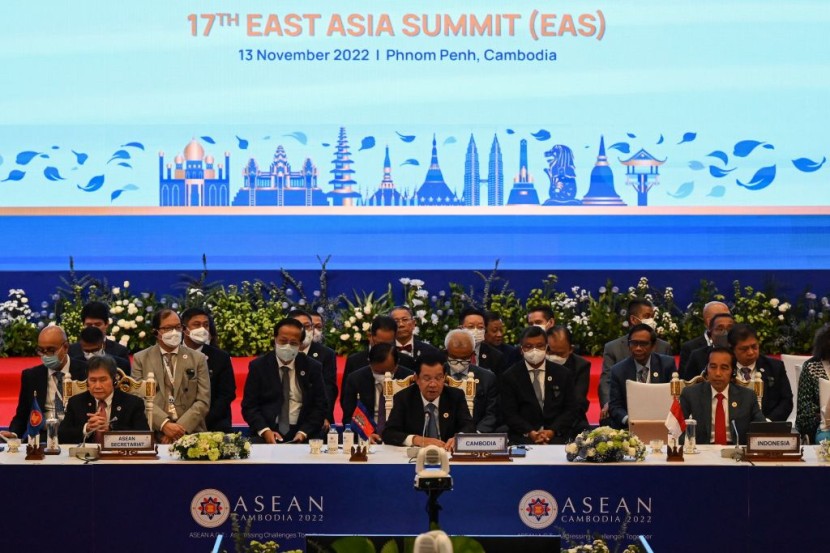
Southeast Asia leaders of the ASEAN are well aware of attempts by the Biden administration to polarize members to support it in a Cold War against China. The current chairmanship held by Indonesia refused to allow the Asian bloc or any member to become a vassal to Washington.
Southeast Asian Leaders Not To Allow Provocations
Joko Widodo, the Indonesian president, made it clear the 10-member bloc, with 700 million people, should be dignified. Includes the enforcing humanitarian and democratic ideals challenged by the Myanmar coup and Cambodian human rights, reported Republic World.
He stressed the Asian bloc should be peaceful and engender global stability, respect international and avoid acting as a proxy to the world powers. A constant danger the region could be sucked in by geopolitical events that can impact peace and stability.
The US actively endorsed specific actions in the Asia-Pacific, like the stand-off between Taipei and Beijing that could be a full-blown cold war. Washington does not want Beijing to claim Taiwan and has done a thing that has sent tensions rocketing, noted ABC News.
Against the backdrop of the Southeast Asian leaders of the ASEAN dialogue in Phnom Penh during the weekend; the US, India, Australia, and Japan; all Quad members were engaged in naval drills in the Philippine Sea on the east side of Taiwan.
Last Saturday, approximately 35 PLAAF fighter planes with bombers were close to Taiwan. Reportedly, about 10 of the squadron flew on the media line of the two stated Taiwanese officials.
Chinese President Xi Jinping is pressuring the island enclave with a show of force; via flights of fighters and bombers, even firing deadly missiles in the nearby seas.
US-China Tension Could Turn Into Cold War
The East Asia Summit was held at the same time as the Association of South East Asian Nations, which includes the US and China.
The White House claims to follow international law and seek a peaceful resolution, but its actions are incompatible. These comments came before the awaited Bali summit of the Group of 20, where Xi and Biden are supposed to meet.
in the opening remarks from the East Asia Summit, Cambodian leader Hun Sen said unity is needed where Biden, Chinese Prime Minister Li Keqiang, and Russian Foreign Minister Sergey Lavrov were told global instability is too tense, citing Fox2 Now.
Hu Sen added nations not called by their names would avoid unipolarity and mutual respect for all challenges. Too many challenges will impact sustainable development and cause more problems. Included in the summit were Australia, New Zealand, South Korea, Japan, and others.
Biden opened up about human rights in Cambodia; told Hu Sen to be more democratic before the 2023 elections.
By mentioning the release of activists, concern over the nationalist problems of the leadership with China was incepted. One more concern of the US leader is the Myanmar junta's overthrow of the civilian government in February 2021 and the arrest of Aung San Suu Kyi.
Li Keqiang said the meeting of the Asian bloc, Beijing, and South Korea is deteriorating global security. He panned unipolarity and protectionism as the denigration of many nations. He stresses that East Asia should strive for more order; not be affected by other influences.
The Southeast Asian leaders of the ASEAN will not allow the region to be a scene of another Cold War, as the US seeks allies that are not directly involved.








